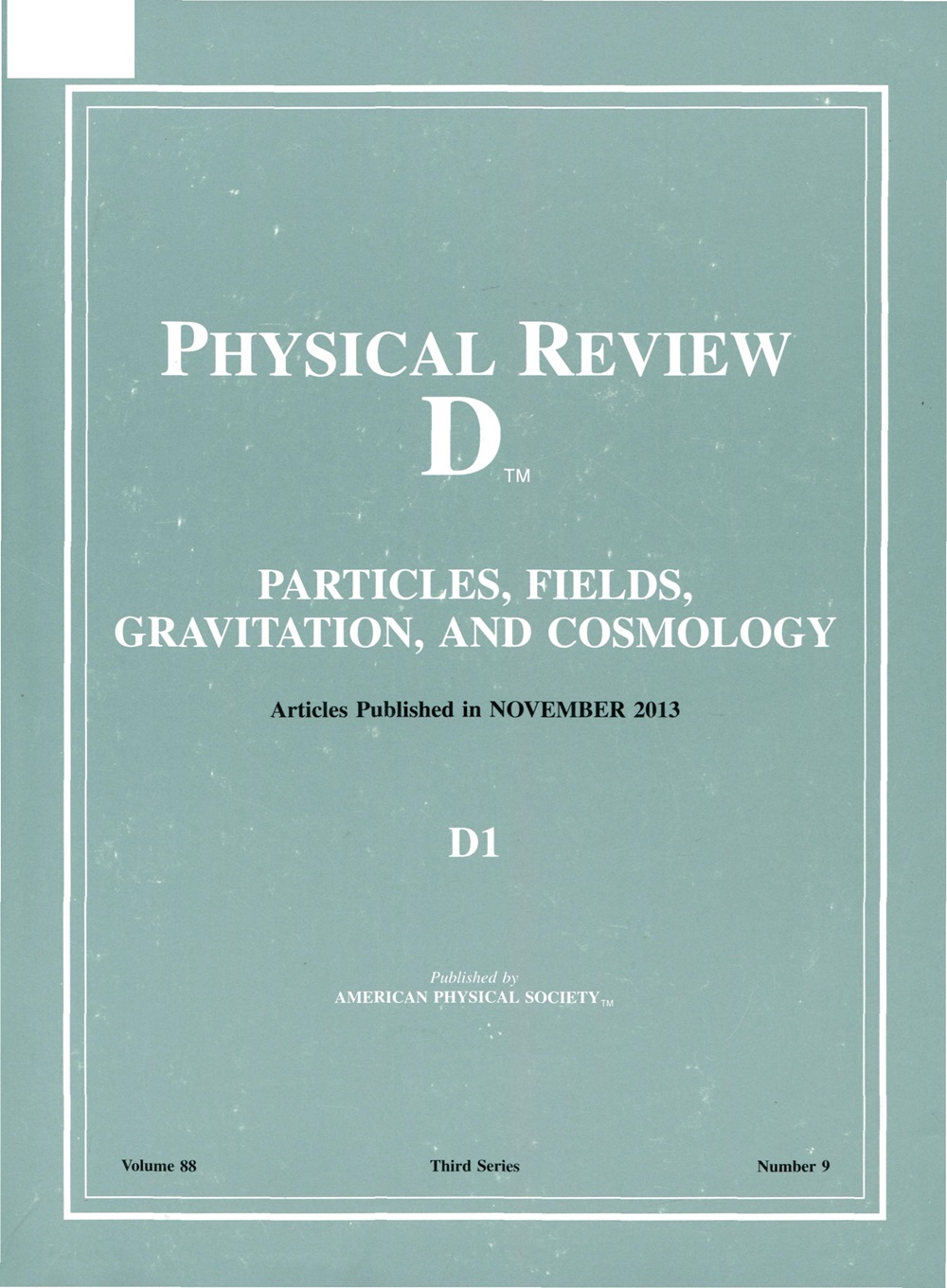检测非齐次手性对称性破缺的新工具
IF 5.3
2区 物理与天体物理
Q1 Physics and Astronomy
引用次数: 0
摘要
本文讨论了在费米子理论中寻找非齐次手性对称性破缺的一种新方法。我们想到的主要应用是QCD,但该方法也适用于其他理论,包括固态应用。它是基于对非均相的手性敏感性的扩展,并作为一种稳定性分析。我们的方法使我们能够确定何时均质溶液有产生空间调制冷凝物的倾向。作为原理证明,我们将该技术应用于彩虹阶梯QCD模型,发现其相图包含一个非均匀区域。2025年由美国物理学会出版本文章由计算机程序翻译,如有差异,请以英文原文为准。
New tool to detect inhomogeneous chiral-symmetry breaking
In this paper, we discuss a novel method to search for inhomogeneous chiral symmetry breaking in theories with fermions. The prime application we have in mind is QCD, but the method is also applicable for other theories, including solid state applications. It is based on an extension of the chiral susceptibility to inhomogeneous phases, and it works as a stability analysis. Our method allows us to determine when homogeneous solutions have the tendency to create spatially modulated condensates. As proof of principle, we apply this technique to a rainbow-ladder QCD model and find that its phase diagram contains an inhomogeneous region. Published by the American Physical Society 2025
求助全文
通过发布文献求助,成功后即可免费获取论文全文。
去求助
来源期刊

Physical Review D
物理-天文与天体物理
CiteScore
9.20
自引率
36.00%
发文量
0
审稿时长
2 months
期刊介绍:
Physical Review D (PRD) is a leading journal in elementary particle physics, field theory, gravitation, and cosmology and is one of the top-cited journals in high-energy physics.
PRD covers experimental and theoretical results in all aspects of particle physics, field theory, gravitation and cosmology, including:
Particle physics experiments,
Electroweak interactions,
Strong interactions,
Lattice field theories, lattice QCD,
Beyond the standard model physics,
Phenomenological aspects of field theory, general methods,
Gravity, cosmology, cosmic rays,
Astrophysics and astroparticle physics,
General relativity,
Formal aspects of field theory, field theory in curved space,
String theory, quantum gravity, gauge/gravity duality.
 求助内容:
求助内容: 应助结果提醒方式:
应助结果提醒方式:


